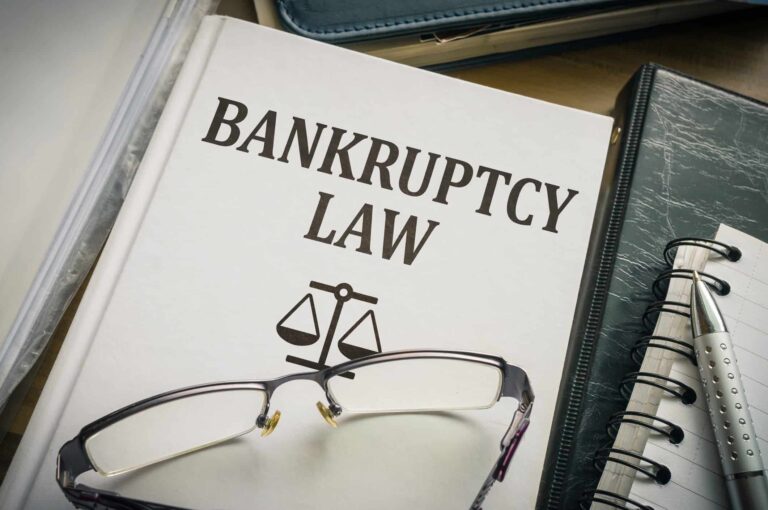Can You File Bankruptcy Twice?

Have you already filed for bankruptcy once, but have fallen on hard times and are looking to file again? Before you contact a Nevada bankruptcy attorney, it is important to understand when and if you are eligible to file bankruptcy again.
How often can you file for bankruptcy?
Most people are surprised to learn there are no real set limits on how many times you can file for bankruptcy. However, refiling generally depends on whether or not you received a discharge the previous time, as the discharge provides information about repeat filings via bankruptcy code.
Have questions about filing bankruptcy in Nevada? Schedule a free consultation with our bankruptcy attorney today.
Is there a time limit between bankruptcy filings?
If you were not presented with a bankruptcy discharge following the previous filing, there is no waiting period time limit concerning when you can refile for bankruptcy again. However, it is essential to understand that the bankruptcy court does set waiting period time limits between filings for discharged cases.
The primary reason for this is to prevent people from fraudulently running up debt they cannot afford and then declaring bankruptcy on it. Rather, bankruptcy is an effective legal option for people who are struggling financially and need a fresh start.
Chapter 7 Time Limits
After you receive a discharge from a previous Chapter 7 bankruptcy, the following time limits apply:
- To file a new Chapter 7 bankruptcy, you must wait eight years from the date your previous Chapter 7 bankruptcy was filed. For example, if your last filing was on March 24, 2014, you can file for Chapter 7 again on or after March 24, 2022.
- To file for a Chapter 13 bankruptcy, you must wait four years from the date your previous Chapter 7 bankruptcy was filed. For instance, your previous filing was on January 12, 2018. You can file for Chapter 13 on or after January 12, 2022.
Chapter 13 Time Limits
After you receive a discharge from a previous Chapter 13 bankruptcy, the following time limits apply:
- To file a new Chapter 13 bankruptcy, you must wait two years from the date of your previous filing. In addition, the earlier filing must have been discharged. So, if you filed on July 17, 2020, you can file for a new Chapter 13 on or after July 17, 2022.
- To file for Chapter 7 bankruptcy, you must wait six years from your previous Chapter 13 filing date. Suppose your prior filing date was June 3, 2016. Then, you could file for Chapter 7 on or after June 3, 2022.
While you can legally file for bankruptcy before these time limits, your new filing will not be discharged by the bankruptcy court. Therefore, you will still be financially liable for your debts.
What is a discharge in a bankruptcy case?
A discharge in a bankruptcy case is a court order issued by the bankruptcy court. The discharge releases an individual from all financial and legal obligations for the debts included in the bankruptcy filing.
Furthermore, the discharge order permanently prohibits creditors from seeking collection on the debts by any means, including personal communication or legal action. In the simplest terms, a discharge of debt means you are no longer responsible for paying the debt to the creditor.
How do I know if there was a discharge in my bankruptcy case?
The bankruptcy court will notify all involved parties once the court issues a discharge order. You should receive a copy of the order in the mail or from your bankruptcy attorney. However, if you are unsure whether there was a discharge order issued in your case, you can contact the clerk of the bankruptcy court where your case was filed or call your bankruptcy attorney to see if they received a copy of the order.
The clerk’s office will perform a search and send you a copy of your discharge order once it is found. You can also contact the clerk’s office if you have lost your copy of the discharge order or need additional certified copies.
Please keep in mind that the clerk’s office does charge fees for research and issuing new copies of your court-issued discharge order. So, be sure to ask about the costs before ordering multiple copies.
Does a discharge happen in every case?
Every bankruptcy case is unique, and the outcome will depend on the specific details of each case. Not all types of debts qualify for discharge. Your debts will also not be discharged if you did not wait the required waiting period before filing a new bankruptcy.
Furthermore, it is important to understand discharged debts may not release liens on secured property. It may still be foreclosed on by the creditors. For example, if your car loan lender decides they do not want you to keep the vehicle, it will be foreclosed on and sold to satisfy your financial obligation.
Is there a difference between Chapter 7 vs. Chapter 13?

There are some differences in your financial responsibilities when considering filing Chapter 7 or Chapter 13 bankruptcy.
What is Chapter 7 bankruptcy?
A Chapter 7 bankruptcy eliminates all of your unsecured debts, including credit cards and signature loans. It also stops debt collectors from contacting you, stops wage garnishments, and stops foreclosure of your house. On secured debts, you may be able to keep the asset, such as your home or car, so long as the creditor agrees.
You are not required to make monthly payments on unsecured debts pending your discharge. However, you should still attempt to make monthly payments on your secured debts until an agreement can be reached with the creditors, as this shows good faith.
Filing a Chapter 7 bankruptcy can help you get a fresh start when your debts are too overwhelming.
What is Chapter 13 bankruptcy?
A Chapter 13 bankruptcy can stop your home from being foreclosed while your debts are reorganized to help you get your financial situation back on track. You will still make monthly payments for unsecured and secured debts for a period of three to five years through a more affordable payment plan established by the court-appointed trustee.
The payments are usually paid to the trustee. The trustee’s responsibility is to ensure your creditors receive their share of the payments each month. Once you have paid all payments under the court-approved repayment plan, the outstanding balances are discharged.
Additionally, creditors can challenge the inclusion of debits within a bankruptcy case through litigation. After all objections by the creditors have been resolved and the debts are eligible, the court will automatically issue a discharge.
Is filing bankruptcy again right for me?
Understanding the time limits concerning refiling is essential to avoid losing discharge eligibility. If you meet the time limits, filing bankruptcy again could be beneficial when you are struggling financially to meet all of your debt obligations. Look for a bankruptcy attorney near me to help assess your situation and give appropriate recommendations.
To determine whether filing a new bankruptcy could be beneficial, please feel free to contact our bankruptcy attorney for a free consultation today.
Have questions about filing for bankruptcy in Nevada? Find a bankruptcy attorney near you today!
Sources:
United States Courts. Bankruptcy.
United States Courts. Discharge in Bankruptcy – Bankruptcy Basics.






